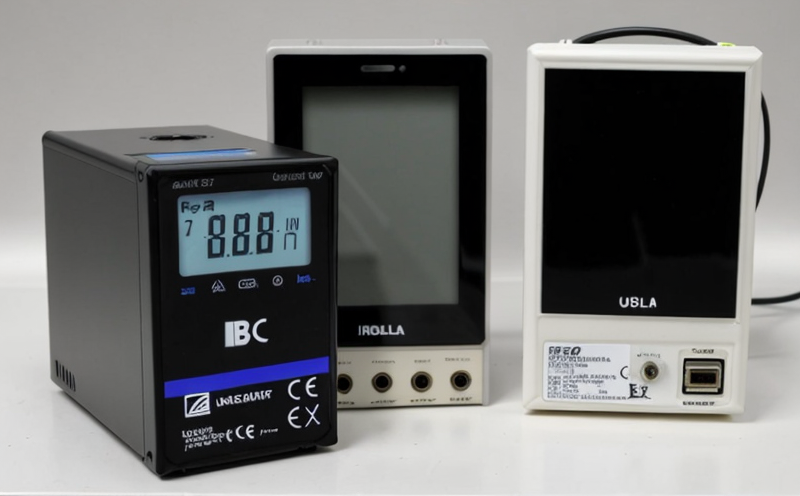JIS C8712 Consumer Electronics Secondary Lithium Cell Testing
The JIS C8712 standard is a critical framework that ensures the safety and performance of secondary lithium cells used in consumer electronics. These batteries are essential components in various devices such as smartphones, laptops, tablets, and other portable electronic gadgets. The stringent testing outlined by this standard helps manufacturers guarantee reliable battery life, consistent output, and safety under real-world conditions.
Secondary lithium cells, also known as rechargeable lithium-ion or lithium-polymer batteries, are widely used due to their high energy density and long cycle life. However, the complexity of these batteries necessitates thorough testing to ensure they meet stringent quality standards. JIS C8712 specifies a series of tests that address various aspects of battery performance and safety:
The standard covers several key tests including, but not limited to, internal resistance measurement, capacity retention test, cycle life test, and overcharge/overdischarge test. These tests are designed to evaluate the reliability and durability of lithium cells under different stress conditions. For instance, the cycle life test simulates real-world usage patterns by charging and discharging the battery multiple times, while the overcharge/overdischarge test evaluates how well the cell handles extreme voltage conditions.
Compliance with JIS C8712 is crucial for manufacturers aiming to enter competitive markets that have stringent quality requirements. Meeting these standards ensures product safety, enhances brand reputation, and facilitates smoother supply chain management by reducing the risk of recalls or market withdrawals due to non-compliance issues.
The testing process involves precise instrumentation and controlled environments to simulate real-world usage scenarios accurately. This includes temperature control chambers for simulating different ambient temperatures during charging and discharging cycles. Additionally, sophisticated equipment is used for measuring internal resistance and monitoring voltage levels throughout the test duration. The data collected from these tests are crucial for identifying potential weaknesses in battery design or manufacturing processes.
In summary, JIS C8712 testing plays a vital role in ensuring the quality and safety of secondary lithium cells employed in consumer electronics. By adhering to this standard, manufacturers can enhance product reliability, extend service life, and meet regulatory requirements effectively.
Benefits
Compliance with JIS C8712 offers numerous benefits for both manufacturers and consumers:
- Enhanced Product Reliability: Rigorous testing ensures that batteries perform consistently across all devices, reducing the risk of failures.
- Better Safety Standards: The standard helps identify potential hazards early in the development process, preventing accidents and injuries.
- Increased Market Access: Meeting JIS C8712 requirements opens doors to international markets with stringent quality standards.
- Improved Brand Reputation: Consistent product performance boosts brand trust and customer satisfaction.
- Cost Efficiency: Early detection of issues through testing can prevent costly post-market recalls and warranty claims.
Eurolab Advantages
Eurolab stands out as a premier provider of JIS C8712 Consumer Electronics Secondary Lithium Cell Testing services, offering unparalleled expertise and precision:
- Comprehensive Testing Capabilities: Our state-of-the-art facilities support all aspects of the JIS C8712 testing protocol.
- Dedicated Technical Support: Our team of experienced engineers provides guidance throughout the testing process, ensuring compliance with industry best practices.
- Accurate and Reliable Results: Utilizing advanced instrumentation and controlled environments, we deliver precise test results that are essential for product development.
- Compliance Assurance: Eurolab ensures all tests meet the highest standards set by JIS C8712, reducing the risk of non-compliance issues.
Competitive Advantage and Market Impact
Adopting JIS C8712 testing offers significant competitive advantages for manufacturers:
Enhanced Product Quality: By adhering to this standard, manufacturers can ensure their products consistently meet or exceed industry benchmarks.
Better Consumer Trust: Transparent adherence to rigorous safety and performance standards builds trust with consumers.
Facilitated Market Entry: Meeting JIS C8712 requirements opens up access to international markets that prioritize quality and safety.
Innovation Support: The testing protocol encourages continuous improvement, driving innovation in battery technology.





